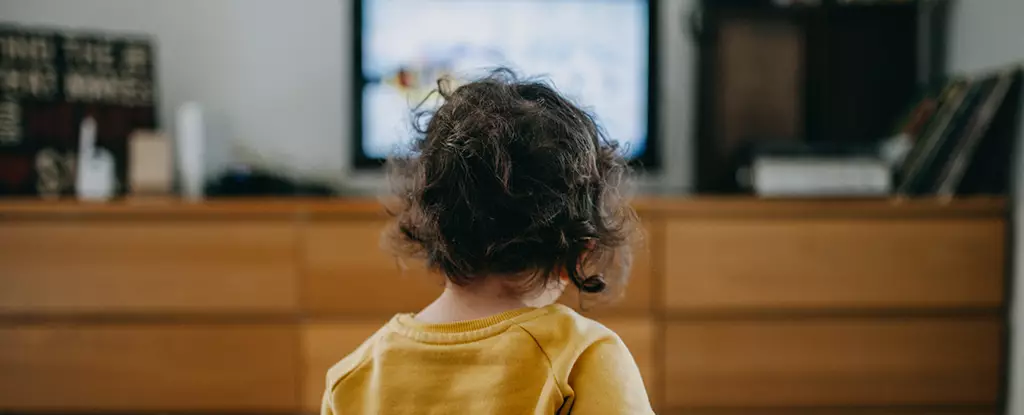In today’s digital age, screens have become an integral part of our lives. From smartphones to tablets, screens offer a temporary escape for parents, providing a break from the chaotic nature of parenting. However, while screen time may provide a momentary reprieve, it is not without its consequences, especially for babies and toddlers. Recent research has shed light on the potential risks associated with excessive screen time, including the development of atypical sensory-processing behaviors in children. This article delves into the study’s findings and explores the implications for parents and caregivers.
While screens might seem like a harmless distraction, they can divert children’s attention away from physical activities and imaginative play. Overexposure to screens can hinder the development of critical skills such as emotional self-regulation. A new study reveals an additional risk: the development of atypical sensory-processing behaviors in babies and toddlers. The study demonstrates that children who spent more time watching TV or other videos before the age of 2 were more likely to display these behaviors before the age of 3. Moreover, the intensity of screen time correlated with an increased likelihood of atypical sensory processing.
Atypical sensory-processing behaviors provide insights into a child’s ability to interpret and respond to sensory input. These behaviors include “sensation seeking” (where a child seeks intense sensory stimulation), “sensation avoiding” (when a child is averse to intense sensations), and “low registration” (a lower sensitivity or slower response to stimuli). By recognizing and understanding these behaviors, parents and caregivers can gain valuable insights into a child’s sensory-processing skills.
The study utilized data collected from the US National Children’s Study, a comprehensive investigation into environmental influences on child health and development. Although the study was halted prematurely, data from approximately 5,000 children, obtained through questionnaires completed by their parents or caregivers, were still available for analysis. The questionnaire, known as the Infant/Toddler Sensory Profile (ITSP), assessed sensory-processing skills in small children. Caregivers provided information about their child’s screen exposure at 12, 18, and 24 months.
The analysis of the data from 1,471 children revealed compelling associations between screen time and sensory-processing behaviors. For 1-year-olds, any screen time during their first year was linked to a 105 percent higher likelihood of displaying high sensory behaviors related to low registration at 33 months. In 18-month-olds, each additional hour of daily screen time increased the likelihood of exhibiting high sensory behaviors related to sensation avoiding and low registration by 23 percent at 33 months. Similarly, among 2-year-olds, every extra hour of screen time per day was associated with a 20 percent higher likelihood of high sensation seeking, sensory sensitivity, and sensation avoiding within the following year.
Although the study controlled for various factors, such as age, health history, and caregiver education, it points to screen time as a significant contributing factor to atypical sensory-processing behaviors. Further research is required to establish a causal relationship conclusively. However, the study’s authors suggest that the findings should be taken seriously and seen as an addition to the growing list of health concerns associated with screen time in young children, including sleep troubles, language delays, behavioral problems, and autism spectrum disorder.
The prevalence of atypical sensory processing in conditions such as autism spectrum disorder (ASD) and attention deficit hyperactivity disorder (ADHD) is well-documented. Children with ASD often exhibit repetitive behaviors, which are closely tied to atypical sensory processing. Research has also linked atypical sensory processing to hyperactivity, irritability, social difficulties, anxiety, and impaired executive function in children with ADHD. These findings highlight the need for action, including reducing screen time and incorporating sensory-processing practices delivered by occupational therapists.
The impact of screen time on babies and toddlers goes beyond the immediate distractions it offers. Excessive screen time can contribute to the development of atypical sensory-processing behaviors, potentially leading to a range of developmental and behavioral issues. Parents and caregivers must be aware of the risks associated with screen time and take proactive measures to minimize its impact, including reducing screen time for children under the age of two. By prioritizing sensory-processing practices and seeking professional guidance when necessary, parents can help mitigate the potential negative consequences of excessive screen time on their child’s development and well-being.

Leave a Reply